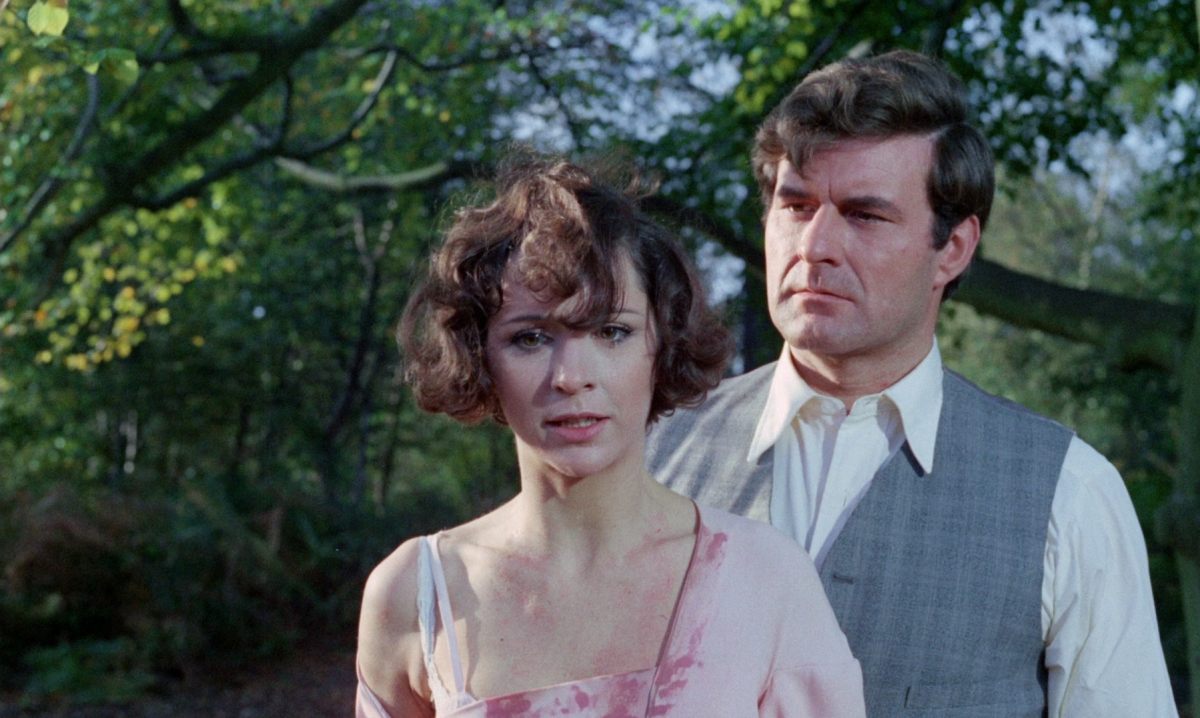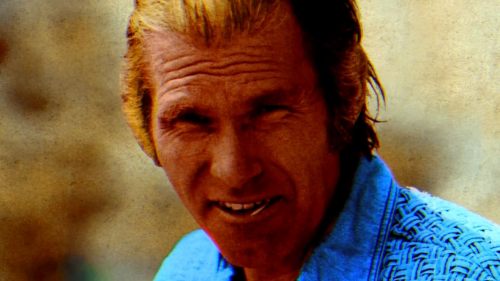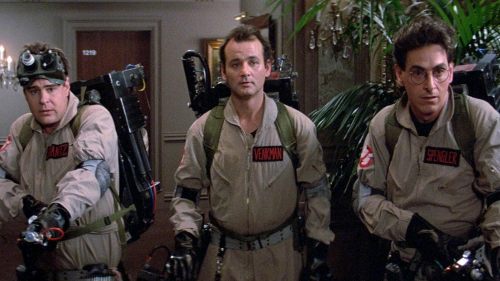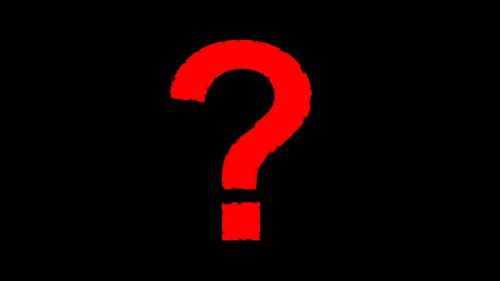Collins’ Crypt: Hammer’s THE DEVIL RIDES OUT Is As Good As The Book
When Scream Factory's release of The Devil Rides Out arrived in October, I thought I had seen it before and - given that it's a very busy time for me what with Halloween and all the extra horror events that come with it - tossed it in an ever-growing pile of discs that I optimistically hope to watch when time allows. I then forgot all about it until last week when it happened to catch my eye when looking for something to watch one night, and when I looked at the back to see the runtime I realized that I actually *hadn't* seen it, and that I was thinking of To The Devil A Daughter. In my defense, that is also a Christophe Lee-starring Hammer film based on a Dennis Wheatley novel with "Devil" in the title, so I wasn't way off, but still - I really need to look at these things more closely.
Because as it turns out, Devil Rides Out is kind of great (unlike To The Devil A Daughter, which is... fine), and a perfect October-y kind of movie. I don't pretend to be a Hammer expert or anything, as I've probably seen only around half of their horror library (and - as evidenced above - sometimes mix them up), but for what it's worth it might be one of my favorite movies from the venerable company. They didn't deal with the occult and mysticism all that often, preferring to stick to traditional monsters and villains (i.e. vampires and mad scientist types), which is probably for the best since it didn't work out all that well when they did - the aforementioned Daughter is a bit of a snooze and 1966's The Witches is one of their weaker films as a whole. But everything apparently aligned here; they had Lee, director Terence Fisher, and the great Richard Matheson on screenplay duties - a surefire recipe for success if I've ever heard one.
And as it turns out, Matheson had a solid novel to base his screenplay on. Wheatley's original novel came out in 1934, and while it seems short at only 310 pages, it's printed in a fairly small font size, so it's denser than it looks. However, a lot of the text is given over to lengthy backstories and histories of various occult events throughout modern history, as Wheatley did a lot of research on the subject and apparently felt the need to include everything he had learned. It's almost kind of comical at times, hero Duke De Richleau (Lee's character) will ask a simple question like "Do you believe in magic?" and the reply will be "Of course not, for in 1912... (lengthy, full paragraph of someone exposing a magic act as phony)" and then De Richleau will counter with full-detail examples of magic being real indeed. Even when tensions are high, folks will stop to expound a long anecdote backing their answer rather than offer a simple "yes" or "no" and move things along to the matter at hand. The old phrase "Ask him the time and he'll tell you how to build a clock" came to mind more than once as I read the novel.

Matheson apparently agreed, as he chucks most of that stuff out the window. It's not that it's uninteresting material, but it can dilute or even completely disrupt the tension of the story at times, and perhaps in the thirty-plus years that passed between Wheatley publishing the story and Hammer turning it into a film, people needed less convincing of the existence of Satanic rituals or occult phenomena. Plus, Wheatley's actual tale was exciting enough on its own without all the bells and whistles, so if anything Matheson's version simply makes that clearer. The plot kicks off when De Richleau meets up with his friend Rex van Ryn (Leon Greene in the film) for an annual get-together, only to tell Rex that their usual third party, Simon (Patrick Mower) has been acting strange lately and won't be joining them. Insulted and somewhat concerned, Rex convinces the Duke that they need to check on him, and upon arriving at his house, they discover Simon is hosting a gathering of what he calls an astronomy club, but De Richleau quickly (and correctly) deduces that they are in fact Satanists, and Simon is under their spell.
So they do what any of us would do when discovering a friend had fallen in with cult jerks: they knock Simon out and kidnap him, bringing him back to the Duke's house in hopes of undoing whatever hold the cult leader Mocata (Charles Gray; yep, the movie offers the rare sight of one Bond villain fighting another) has over him. Mocata is of course none too happy about it, and the rest of the book/film concerns their back and forth struggle over the life and soul of both Simon and Tanith, a mysterious woman from the cult who Rex falls in love with. Matheson more or less stays faithful to Wheatley's source material, he just simplifies where he can, a decision that was probably necessary for budgetary reasons, but nevertheless keeps the pace from slagging as it occasionally does in the novel.
For example, in the third act, Mocata kidnaps the daughter of a mutual friend of the trio, and they obviously direct all of their attention to getting her back. In the book, this is an epic quest that could almost be a movie of its own, as it requires them to travel from London to Paris, where they have a run-in with some police (Mocata sets them up to look like they're the Satanic cult members), and then from Paris to Greece, where Mocata has a big sacrifice planned. The journey is so long that it has time for things like a fancy dinner where De Richleau tells the parents of the kidnapped child some light and amusing anecdotes to try to get their mind off of things, then even some time spent on making sure the maître d' is fully aware that they didn't eat much because of their mood, not because of the service/food itself. Even if Hammer wanted to pay for these location changes and extra cast members, I would like to think Matheson would save them a few bucks - and make the movie stronger - by simply having Mocata bring the girl to one of his usual spots in England, a mere car ride away from where they already were.

However, when it comes to the Tanith character, perhaps the screenwriter went a bit too far in that direction. In the movie, Tanith (Nike Arrighi) is basically "the girl" in the usual movie sense: she's very pretty, one of our heroes likes her, and she gets rescued on occasion. But the book puts a lot more meat on those bones; we learn more about her past and why she got into the cult in the first place, and we also get a sense of a real romance between her and Rex, as opposed to the somewhat cliche "they meet in scene one, have a moment in scene two, and are practically ready to get married in scene three" kind of relationship the film offers. Part of this is because Wheatley set them off on a separate adventure some distance away, giving them time to bond, whereas the film keeps them close to the main group for the most part - the movie offers a quick car chase that kicks off when she steals Rex's car as they arrive at his friends' home, but in the book they're nowhere near anyone else and when she steals the car it leaves Rex stranded for the better part of the day.
Another plus of Wheatley's prose that the film can't quite match is how he writes the hypnotizing scenes. At one point Mocata comes to where they're all staying at, and hypnotizes the lady of the house to determine their exact locations and who they are with (so he has all the info he needs to mount his attack), and it's a pretty good scene in the movie, but the book allows the interesting point of view of the woman as she gradually comes under his spell. So at first her inner monologue is repulsed by his appearance, and laughing to herself at his attempts to draw her under his spell, but then it switches to Mocata's perspective as he leans on his powers a bit more, and when it goes back to her POV, she is thinking that he's really not all THAT ugly of a man and that his requests seem reasonable enough. It's kind of chilling to read how quickly she changes her tune thanks to his powers, an effect the movie can't quite nail as successfully. There's also a similar, equally good bit where Wheatley describes someone fighting off the urge to sleep - he nails that inner conflict perfectly ("how can I fall asleep with so much going on?" thoughts mixed with the comfort of just "resting the eyes" kind of thing), but in the movie... the guy just falls asleep.
So it's an ideal adaptation, in my opinion - it presents the complete story as Wheatley wrote it, and if you haven't read the book yet, you can then check it out and relive the story you enjoyed with more details and subplots that add flavor without necessarily being essential. Wheatley himself was quite pleased with the finished product (he was less thrilled about an earlier adaptation of his Uncharted Seas, released as The Lost Continent), and Lee - who was clearly enjoying playing the hero for a change - considers it one of his finest roles, and I'm inclined to agree. It's a shame they didn't adapt more of his adventures; Wheatley featured the character in several novels (this was actually the second in the line), which weren't all occult-themed - some were straight-up spy thrillers, with this novel mentioning some of his exploits in that capacity - but likely could have been modified to present a franchise that offered a fun mix of the Bond ripoffs that were popular at the time and traditional Hammer horror. That said, at least they did a great job with the one they did make (as did Scream Factory with the Blu-ray), and I thank it for giving me a reason to read something of Wheatley's, as I've known the name for a while but never actually sat down with one of his books. Feel free to offer suggestions for another!



